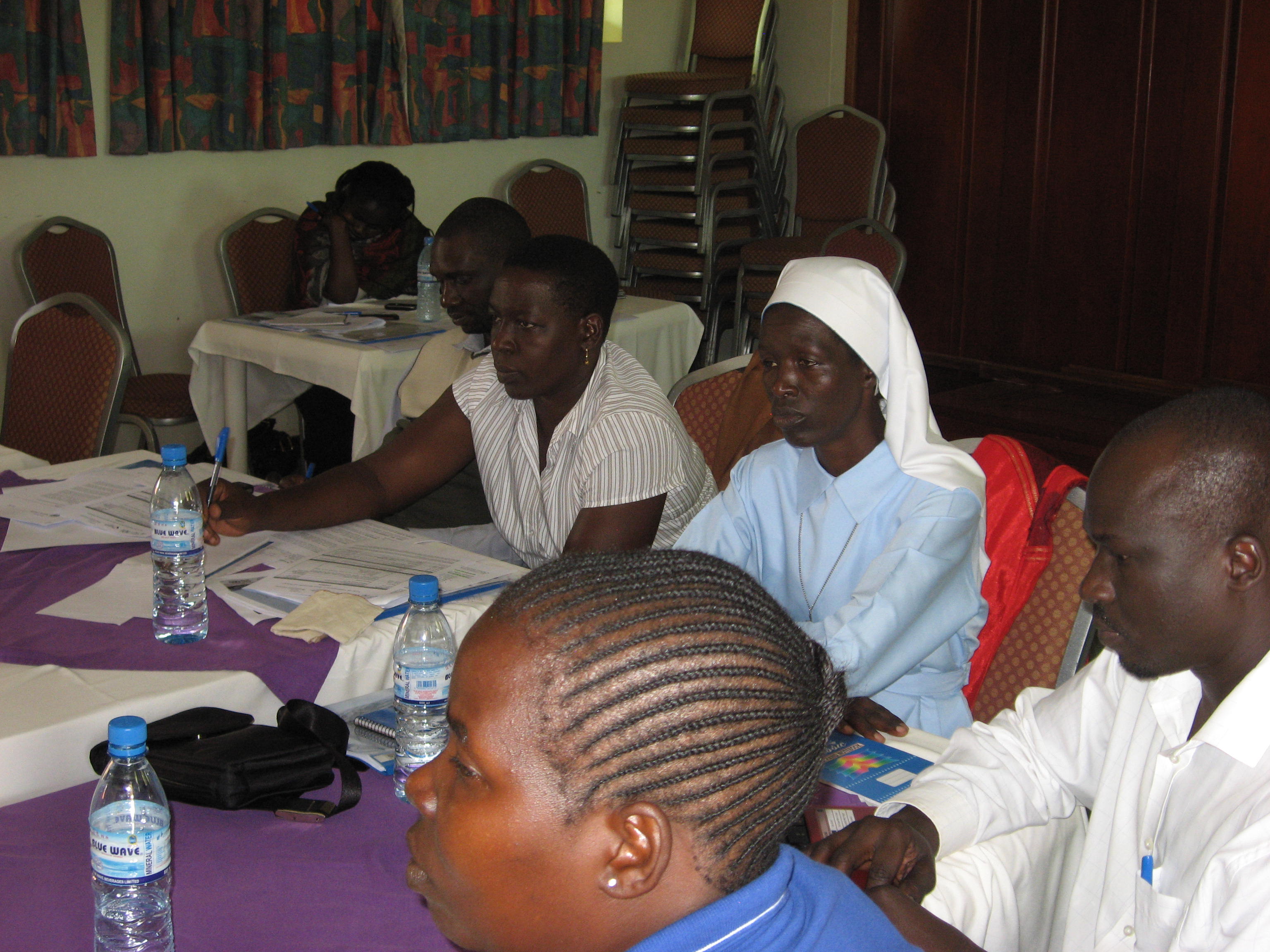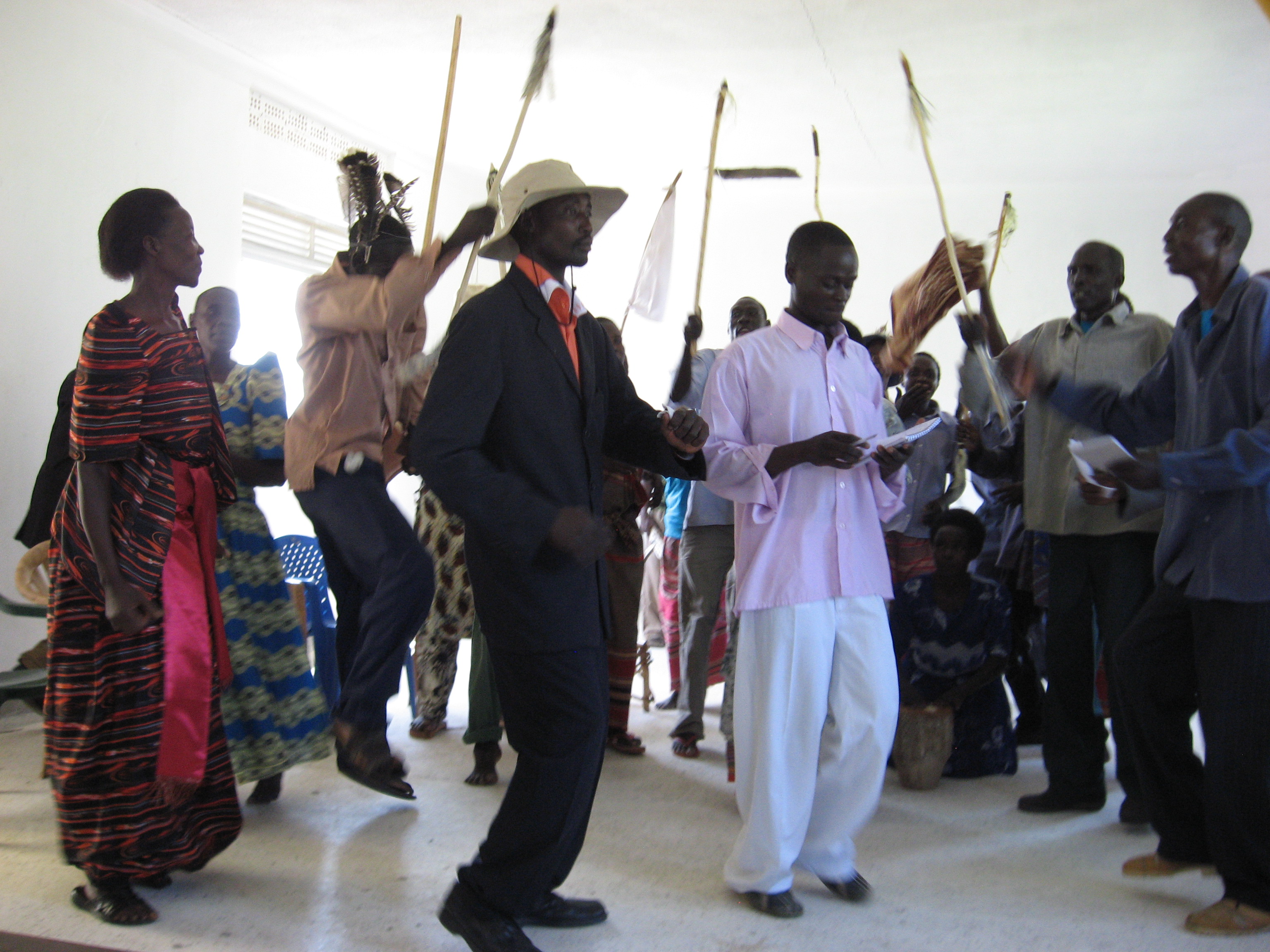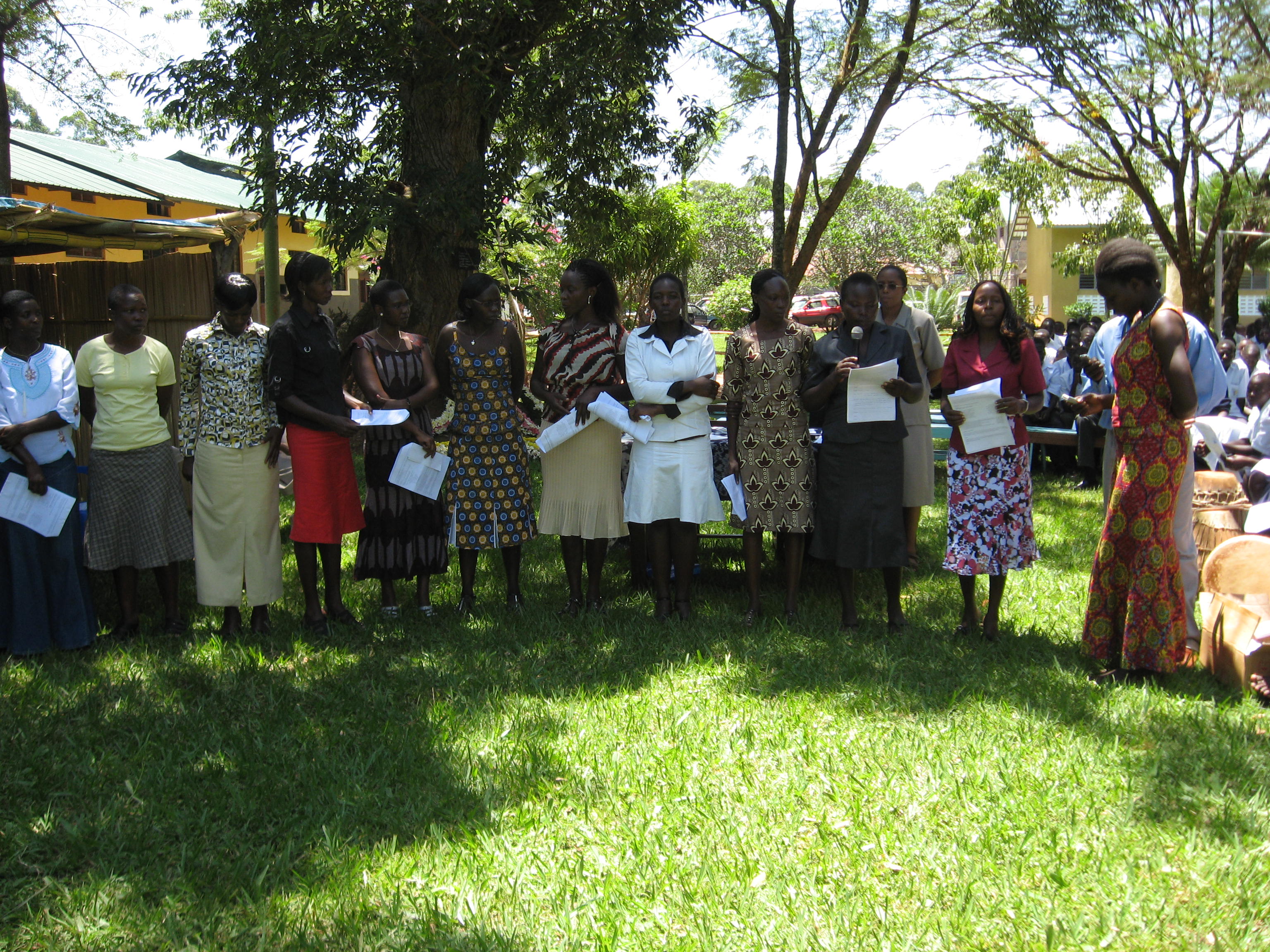“Targets or Captives? Obama’s LRA Challenge,” CIC, 19 Oct. 2011
http://www.opencanada.org/features/targets-or-captives-obama%e2%80%99s-lra-challenge/#.Tpydk0dlwRk.facebook
By Erin Baines
Last week in Gulu, northern Uganda, in what might seem like a rather ordinary event, something remarkable happened: Grace gave birth, surrounded by her female friends. After more than thirty hours of hard labour and an emergency caesarean section, Grace’s tiny baby girl was placed into her arms. The bringing of new life into this world is always special, but this time it represented a moment in which a group of friends that had suffered through decades of war, each having lost family members, opportunities to study and their own childhood, could hope again.
The women were all once abductees of the Lord’s Resistance Army (LRA). They have all lived, grown up, and borne children inside the confines of the rebel group’s camps. Grace herself was abducted by the rebels at the age of 14 and forced to marry a rebel commander. The birth of her daughter amongst so much love is the promise of new life.
The women now work in a small project in northern Uganda, the Justice and Reconciliation Project (JRP), to help victims of the war tell their story, to heal and to seek social change. I have worked with this group since they began in 2005 and watched them come together as a family that loves and cares for each other, helping each other rebuild their own lives as well as that of others who lost. They are a stark reminder that, while the rebel leader Joseph Kony remains free and continues to commit atrocities, he is surrounded by literally hundreds of people who were forced into, and now find home in his confines.
Today U.S. President Barack Obama announced he is deploying 100 “combat-equipped” troops to Uganda to help efforts to arrest or eradicate rebels of the Lord’s Resistance Army (LRA) – rebels responsible for the suffering of millions of people in Uganda and neighbouring countries. The U.S. troops will work with the Ugandan military to root out the rebels and put an end to their more than two decades of terror. The LRA is one of the cruellest, most brutal rebel groups known, abducting tens of thousands of children like Grace and forcing them to fight in a war, or to be wives to commanders. In addition to abduction, the rebel signature is the murder, mutilation, rape and plunder of civilians.
Originally operational in Uganda and later Sudan, the LRA’s numbers and strength have dwindled in recent years. In 2003 a Ugandan-led military operation against LRA bases in Sudan led to the escape or release of many captives, including Grace, and the capture of commanders. But the leadership, including enigmatic spirit leader Joseph Kony and military war criminals like Okot Odhiambo remain at large, and continue to abduct, kill and maim civilians in the Democratic Republic of Congo, Central African Republic and in South Sudan, where they operate across borders in small mobile groups. Indicted by the International Criminal Court for war crimes and crimes against humanity in 2005, these are men everyone wants to see stopped and held accountable.
Obama’s decision to send troops seems like a positive step. The countries affected support the military action to end human suffering and welcome the troops to defeat a small rebel group that has caused so much damage. Certainly the young activists who have long demanded Obama, and before him George W. Bush, to do something – anything – to end the atrocities of the LRA are cheering. Human rights activists in the U.S. and around the globe have done everything in their power to direct attention to the suffering of abducted children and communities affected by the LRA. Groups like Resolve, Invisible Children and Enough have tried a range of advocacy tactics from holding house parties to raise awareness of American youth, abducting themselves until local politicians or notables agreed to help, talking to Oprah and more conventional tactics like mobilizing massive numbers of students to lobby their state representatives to push a bill on the LRA through Congress.
One of the most impressive strategies to date has been the creation of the LRA tracker, which creates a visual database of all LRA atrocities – each attack, abduction or murder – they currently commit as they move through north eastern Congo today, made possible by working with local organizations working on the ground to solidify communication and protection networks. Surely Obama, whom leaders of these young activists have met, was inspired by their own courage to do something too.
Grace and others who were abducted and escaped during the campaign against the rebels in Sudan, however, worry. Over the years I have worked with JRP in northern Uganda, I have witnessed the team learn when someone had escaped and arrived at the reception centre, only to rush there to console the person now safe and to assure that life can begin anew. Once those who reach safety are healthy – for many return with varying states of malnutrition, disease and wounds of war – Grace and the team work to help them reunite with their families, to find housing and employment, and to soothe them through periods of mourning for those they lost. They tell stories of the days with the rebels, the difficulties of life on the battlefield being chased by the Ugandan army. Some women gave birth without any medical attention under a tree as bullets were exchanged. Others described the moment they realized their child had been hit by a bullet, how there was no time to do anything but lie the child down and continue to flee. Grace knows these painful stories more than anyone else; her five-year-old son, born of forced marriage, was killed when a military bomb was dropped on him in 2004.
So while the military action is a triumph of years of activists and victims calling for the world to intervene and to stop this campaign of violence, I am reminded by the birth of that baby girl that LRA commanders surround themselves with those they have abducted, with innocent women, men and children, who have nothing to do with this war but who suffer as their captives.
The LRA has always been unique in this manner. For years they moved with mothers and children as they fought, refusing to release them. The commanders surround themselves with child soldiers (girls and boys who form the front line). But the LRA is also unique in that some of the commanders themselves are victims. For instance, one of the most wanted commanders, ICC indicted Dominic Ongwen, was captured around 1990 when he was about ten years old. At some undefined point, the international community decided that Ongwen no longer deserved the right to be rescued by the international community, but to be hunted down and held accountable for this war.
The abduction of children and birth of children into the LRA complicates questions of justice and humanitarian intervention in what, at first blush, seems like an easy victory for Obama’s foreign policy team. But as those hundred U.S. soldiers arrive to shore up the Ugandan military’s effort, will they know how to differentiate a rebel from a child who is captive? Will bombs land only on the commanders responsible, sparing the lives of the children? I would feel much more relief if I was reassured that their tracking technologies are equipped to help those being held against their will – some who have been there for decades, others only months – to find their way home. The chance for new life for babies born into love after so much suffering and death depends on the wisdom of Obama and others who join them to end this war, to know the difference. In addition to a military operation to capture Joseph Kony, this must also be a humanitarian mission to free those whose lives he has tried to destroy.
Erin Baines is co-founder of the Justice and Reconciliation Project (JRP) in Gulu, Uganda.
Photo by Lara Rosenoff-Gauvin: Beatrice in Padibe IDP Camp, Kitgum District, Northern Uganda 2007. Beatrice was abducted by the LRA when she was 12 and served 2 years before escaping. 1 in 5 girls and 1 in 3 boys have been abducted at some point by the LRA to serve as ‘child soldiers’ in Northern Uganda. www.hernameisbeatrice.com






